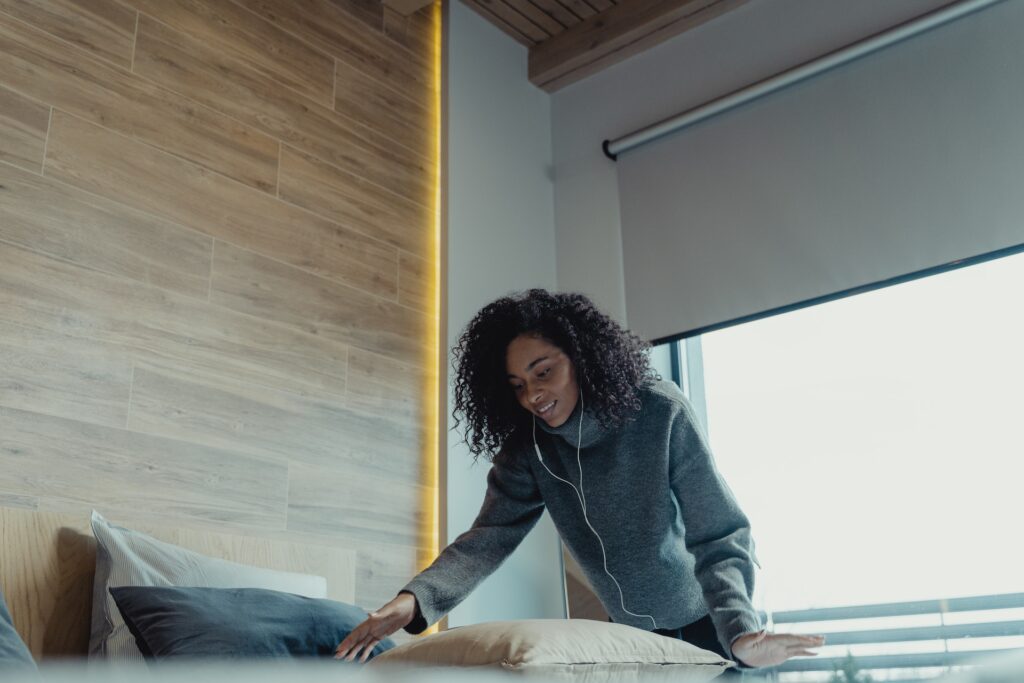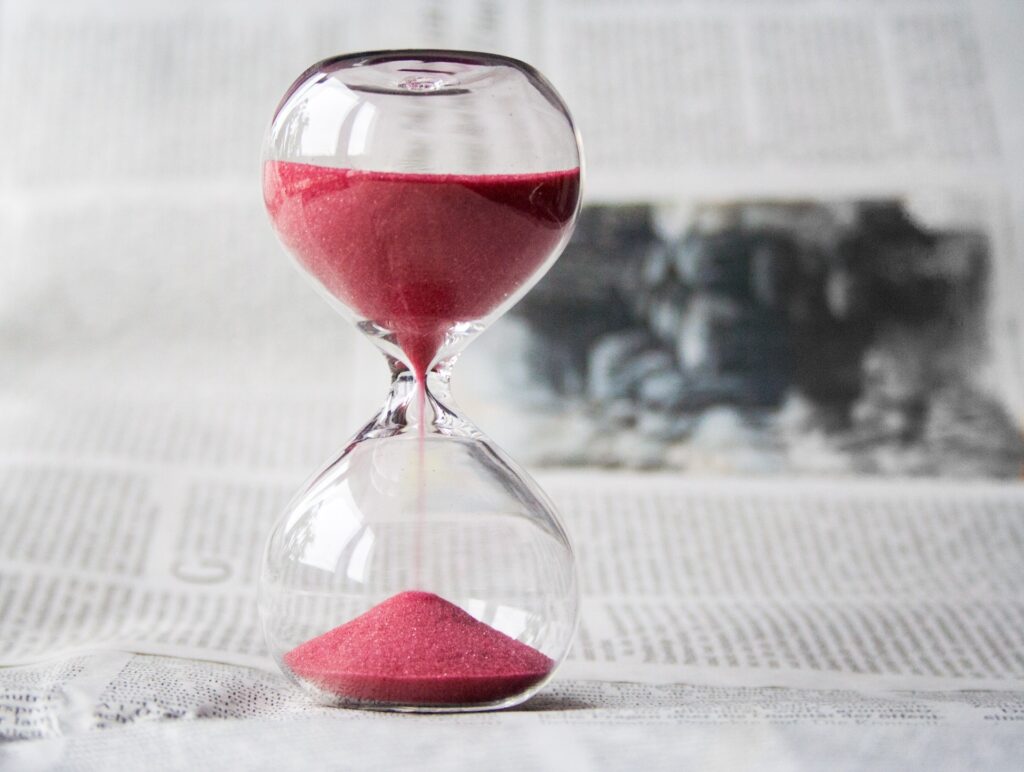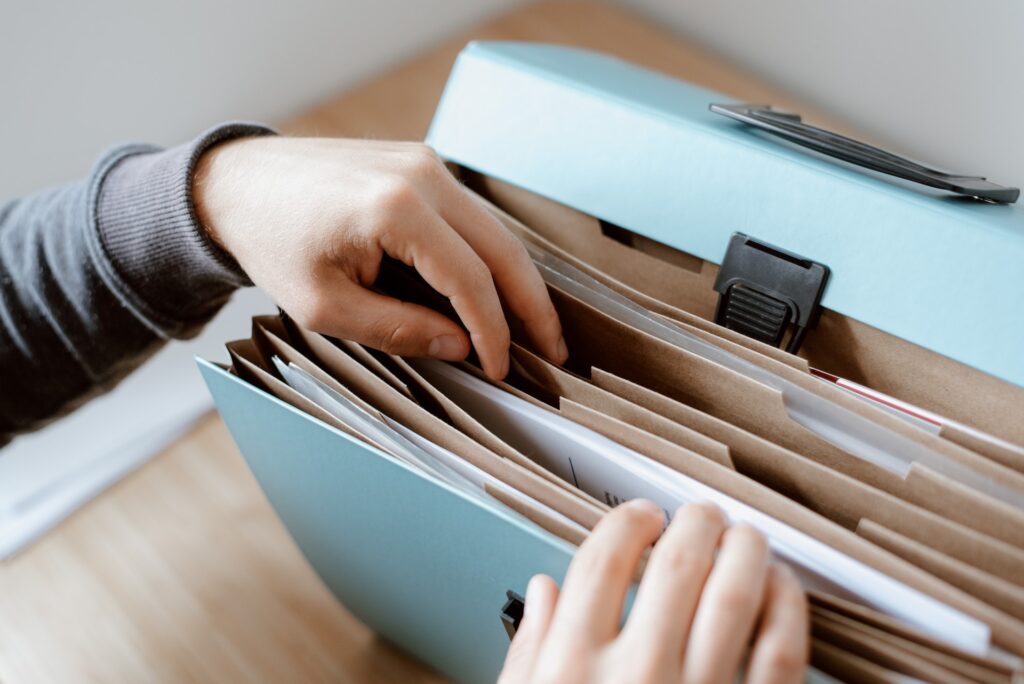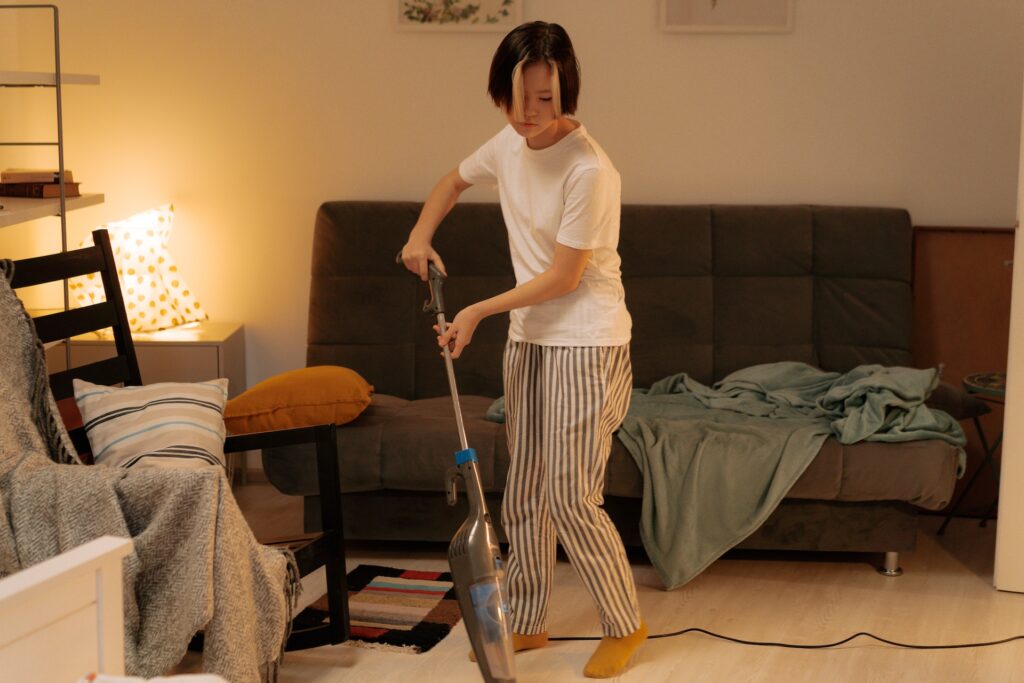You get home after a long day of work, excited to finally become one with your couch and relax. In your head, you’re already in your pajamas catching up on your favorite show after ordering takeout. When you open the door, you realize something terrible has happened: You’ve been robbed!
Clothes are strewn across the floor while dishes and trash litter your apartment in random piles. You shake your head in disbelief trying to understand how this could have happened with no signs of forced entry– Oh wait… you made that mess over the weekend and while rushing out the door for work this morning. And this is not the first time this scenario has played out.
It can be difficult keeping your home clean and tidy when you have a brain that is chaotic and messy, but it’s not impossible. There are ways to prevent it from becoming unbearable and to limit the overwhelm when it does get messy. Here are a few tips and tricks that I use as a neurodivergent myself to prevent ADHD from controlling my mess.
Use Hyperfocus to Your Advantage

Hyperfocus is one of those symptoms that only people who have experienced it can understand. We most often know it to be one of the things that makes life difficult. It pulls us down rabbit holes of oddly specific YouTube videos or Google searches to questions that keep us up at night. No one needs to know why flamingos can only eat with their heads upside down, but for some reason, we do. But what if we could focus this symptom and use it to our benefit?
I have recently discovered that hyperfocus doesn’t have to be the enemy. We are able to focus a project or assignment and tune out the rest of the world completely. When we use it to work on what needs to get done, it’s one of the greatest skills you can have. Remember how fast you’ve gotten those writing assignments done when you were in hyperfocus? Think of it like a superpower that you must train yourself to use, not a burden to carry that only makes life harder. When you learn to use it correctly and cut yourself off before you hit that wall of burnout, it’s game over for the mess in your home.
First, let your loved ones in on it. Whether you live with family or roommates, let them know what hyperfocus looks like and when they should intervene or let you be. This can help everyone involved by canceling out many unnecessary conflicts. It’s important that they can make the distinction between you just being locked in on getting your place cleaned up versus spiraling over conspiracy videos.
If you have the time and are obsessing over getting something done, set a timer and let it happen. When the hyperfocus becomes completely chaotic and overwhelming (AKA anxiety,) it’s time to step away, because it’s not helping you anymore. Force yourself to walk out of the room and take some deep breaths instead of letting yourself spin out when there’s probably not much else to do with that project anyway.
Listen to Music While Cleaning

Speaking of hyperfocus, I’ve found that sometimes the best way to unlock it is to listen to certain kinds of music. Just like with working out or even studying, having something in the background can help anyone, but especially people with neurodivergent brains.
Studies have shown that this helps clear the mind of the 1,000 thoughts we have per minute and hone in on what we are doing. For me personally, I have found that electronic music or anything with a predictable beat helps me concentrate. Others may find that classical music does the same for them. Whatever your preference, give it a try to see if it helps you.
Set a Timer and Do What You Can

Prevent having to do a painful, deep-clean once a month by setting aside time every day to some light housekeeping. Give yourself ten to thirty minutes and clean what you can in that time. Wash those dishes piling up in the sink or put that tornado’s worth of clothes back in your closet or in the laundry. Not only does this help keep your home clean, but it can also be a great way to train your mind to focus on what you want when you want.
Focus on one area at a time

It can be overwhelming to visually take in the mess of your entire home. Instead of scrambling from room to room in a complete panic, try working on one room at a time. Shut the door if you have to. Set a timer for every five to ten minutes to check in with yourself and see how much progress you’ve made.
Depending on the room and how much time you have to tidy up, give yourself a set amount of time to work on it, then leave the room. Take a break and get back to work or pat yourself on the back and move on to a totally unrelated task.
Prioritize Your Tasks

If you have friends coming over in four hours, your bedroom doesn’t need to be cleaned first. Focus on common area spaces like the living room or kitchen. Then after those rooms are presentable and you have time, spend a few minutes in your room or other not-so-seen areas of your home.
There is a big difference between messy and dirty. Focus on making sure things are clean over being tidy; i.e, clean the toothpaste off your bathroom counter before making sure your books in the living room look aesthetically pleasing. Most people can overlook a messy room far more easily than something that actually needs to be cleaned.
Talk to Yourself Out Loud

Now, this tip usually works better if you live alone, so as not to distract or annoy those around you, but if you can do it, you should. If you need to clean two things before you leave a room, say them out loud until you get them finished.
Those with ADHD know that whatever is on the forefront of the brain is what’s going to happen first. Make your priorities clear to your brain by speaking them out loud. It’s another great way to train your brain. You are in charge, not those ten pesky trains of thought that come out of nowhere.
Give Yourself Some Grace

Celebrate those victories, small and large, because they are all important for your growth. Treat yourself when you do get something difficult accomplished, and be kind to yourself when you don’t. Having a brain that fights you all the time is hard, and sometimes, you have to be the one that cuts you some slack when no one else will.
Every day you’re working with a brain that does not want to regularly work with you. You’re doing great! Keep doing your best and implementing tools you learn. The mess will get easier.
